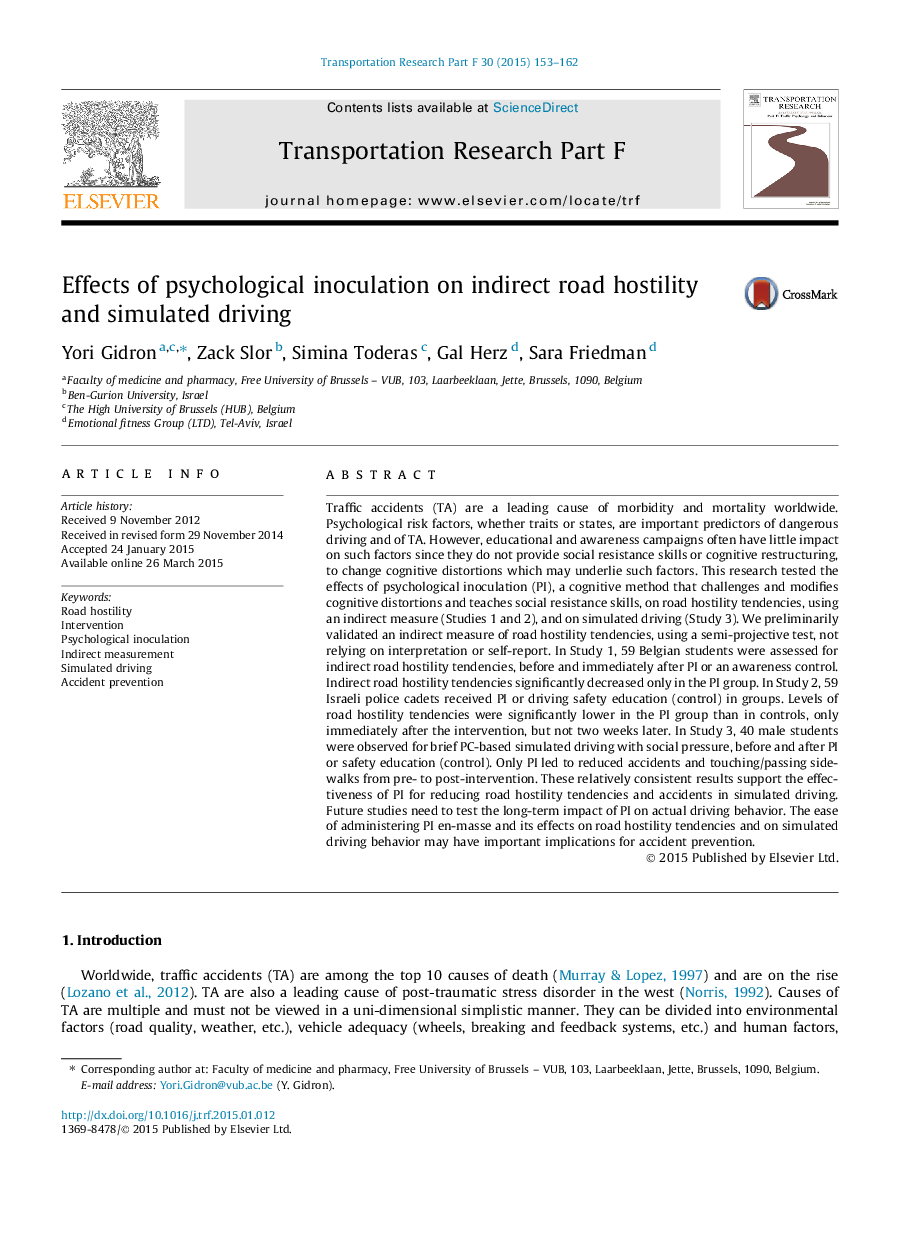| کد مقاله | کد نشریه | سال انتشار | مقاله انگلیسی | نسخه تمام متن |
|---|---|---|---|---|
| 897706 | 1472453 | 2015 | 10 صفحه PDF | دانلود رایگان |
• The study aimed to change hostility, a risk factor of traffic accidents and to reduce simulated accidents.
• Education and awareness have little effects on such risk factors and outcomes.
• We tested for the first time if “psychological inoculation” reduces hostility and simulated dangerous driving.
• Our results in 3 samples and 2 cultures confirm effects of this intervention.
• We assessed road hostility with an indirect, and hence less biased, test, and dangerous driving with a (PC-based) simulator.
Traffic accidents (TA) are a leading cause of morbidity and mortality worldwide. Psychological risk factors, whether traits or states, are important predictors of dangerous driving and of TA. However, educational and awareness campaigns often have little impact on such factors since they do not provide social resistance skills or cognitive restructuring, to change cognitive distortions which may underlie such factors. This research tested the effects of psychological inoculation (PI), a cognitive method that challenges and modifies cognitive distortions and teaches social resistance skills, on road hostility tendencies, using an indirect measure (Studies 1 and 2), and on simulated driving (Study 3). We preliminarily validated an indirect measure of road hostility tendencies, using a semi-projective test, not relying on interpretation or self-report. In Study 1, 59 Belgian students were assessed for indirect road hostility tendencies, before and immediately after PI or an awareness control. Indirect road hostility tendencies significantly decreased only in the PI group. In Study 2, 59 Israeli police cadets received PI or driving safety education (control) in groups. Levels of road hostility tendencies were significantly lower in the PI group than in controls, only immediately after the intervention, but not two weeks later. In Study 3, 40 male students were observed for brief PC-based simulated driving with social pressure, before and after PI or safety education (control). Only PI led to reduced accidents and touching/passing sidewalks from pre- to post-intervention. These relatively consistent results support the effectiveness of PI for reducing road hostility tendencies and accidents in simulated driving. Future studies need to test the long-term impact of PI on actual driving behavior. The ease of administering PI en-masse and its effects on road hostility tendencies and on simulated driving behavior may have important implications for accident prevention.
Journal: Transportation Research Part F: Traffic Psychology and Behaviour - Volume 30, April 2015, Pages 153–162
